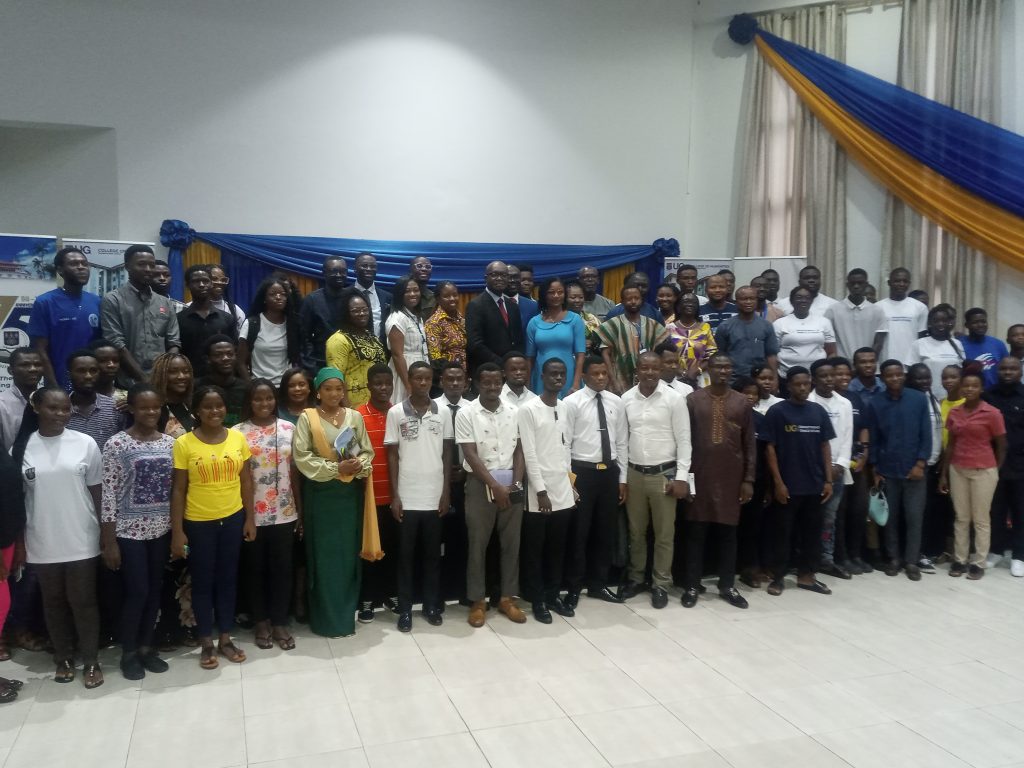By Patience Gbeze
Accra, June 22, GNA – Panelists at a roundtable discussion make a strong case for the College of Humanities, University of Ghana to include multidisciplinary education in its programme to build strong resilience in students.
According to the Panelists, the changing environment demands that students are trained in various disciplines to build their values for progression in life.
The roundtable discussion and the exhibition of scholarly works were organised by the College of Humanities on the theme: “Pathways to Resilience: Perspectives from the Humanities.”
It forms part of the University of Ghana’s 75th anniversary and the Day of Scientific Renaissance of Africa (DSRA).
The DSRA celebration falls on June 30 every year and this year’s celebration has coincided with the 75th Anniversary of the University.
As a result, the College has set aside the whole Month of June to create awareness through seminars and discussions on topical issues and the exhibition of scholarly works to showcase the diversity of disciplines at the various units, schools, institutions, and centres under the college.
Ms Aekua (rpt Aekua) Bobson, a PhD Candidate in the Department of English, School of Languages, said humanities must move away from “a lone subject” and venture into the multidisciplinary culture to create more avenues for students to delve into other fields.

She said: “Resilience is the ability to withstand or recover quickly from difficulty.
She said resilience in humanities, therefore, must be connected to the facility that provided an array of courses, which allow students to choose and pick until they find their niche or what suits them.
She said in that way, “The humanities allow the beauty and versatility of exploration to double, to research and to come to contextualise a theory that allows the beauty of exploring as well as building resilience, values and integrity of its students.
Ms Bobson narrated how such opportunities have shaped her career path and discipline in all spheres.
Mrs Clara Kasser-Tee, a Lecturer at the University of Ghana School of Law and the Centre for Migration Studies said humanities to some extent focused on the human story in many of its facets.
“The humanities discipline, therefore, strengthens research, writing and critical thinking skills in its students, which are all vital to and survival of the human race.
She noted that humanities had produced great men and women who have contributed greatly to the nationhood of Ghana throughout history and the struggle.
These great men and women, she said included John Mensah Sarbah, whose theory at the time that “There are no Ownerless Land in Ghana” prevented the colonialists from investing Ghana’s lands in them.
She said:”… what we need at this time as a country are values, men and women that are willing to model these values but above all, l think at this time, we need values that will make us want to protect our lands and to stand together all of us against practices and actions such as galamsey and its effects on our environment.”
Mr Kwami Edem Senanu, a Management and Development Consultant, noted that concepts such as social capital have been key for resilience.
He said: ”People and our intentional cultivation of relationships constitute an important resource, and l dare to say the ultimate resource all time”.
He, therefore, called for the right-based approaches to solving national problems.
Mr Jerry Boachie-Danquah, the Head of Marketing and Public Relations, said resilience was one quality that everybody needs to develop to have a happy life.
“In the corporate world resilience is about preparing for the future, resilience is about continuity and longevity. You want to run the business to last for several generations to become part of it.
“One of the morsels that we need to really adapt to this ever-changing corporate environment is resilience and with that, you can surmount a lot of challenges that will come your way,” he said.
He said innovation and technology were other areas to embrace to remain in business, adding that businesses need to be resilient to prepare for the changing environment to address issues affecting them properly.
Mr Michael Boadi from Ghana Integrity Initiative noted that the continuous silence of Scholars has been a disservice to the country.
Professor Daniel Frimpong Ofori, the Provost of the College of Humanities, announced that the College had started multidisciplinary courses with the College of Education last two years.
He pledged the College’s preparedness to open more portfolios for students to pick from and expressed the hope that the University would take a cue from them, adding, “Resilience starts with oneself.“
The Organization of Africa Unity (OAU), now African Union (AU) in 1987 passed a resolution for the celebration of the Day of Scientific Renaissance of Africa (DSRA) on 30th June each year.
The core objective of the celebration is to remind African governments and people about the critical roles played by Science and Technology in national development.
This is also done in remembrance of the continent’s great contribution to the rise and development of modern Science and Technology.
The College of Humanities, established in 2014, is the largest at the University with six Schools, 11 Centres and four Research Institutes.
GNA